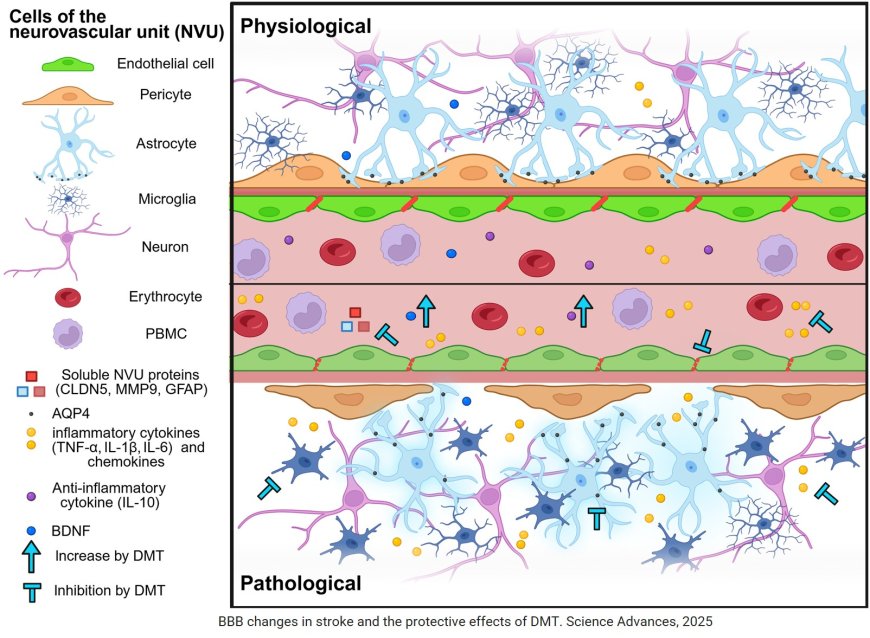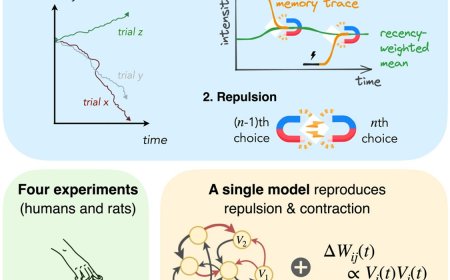Psychoactive agent protects brain vessels and reduces inflammation

DMT, or dimethyltryptamine is a natural psychoactive molecule found in many plants and mammals. According to an article published in Science Advances, researchers found that DMT reduces the harmful effects of stroke in animal models and cell culture experiments.
DMT is also present in the human brain, and it is currently undergoing clinical trials to aid recovery of brain function after stroke. However, its exact mechanism of action had not been fully understood until now. “It is amazing how we can always turn to Nature to find ingenious solutions for health problems” says co-lead author.
“We found that DMT significantly reduced infarct volume and edema formation in a rat stroke model”, explains co-first author. In both animal experiments and cell culture models, the authors showed that DMT treatment restored the structure and function of the damaged blood-brain barrier and improved the function of astroglial cells. This psychoactive compound also inhibited the production of inflammatory cytokines in brain endothelial cells and peripheral immune cells, while reduced the activation of brain microglia cells through Sigma-1 receptors.
“The therapeutic options currently available for stroke are very limited. The dual action of DMT, protecting the blood-brain barrier while reducing brain inflammation, offers a novel, complex approach that could complement existing treatments”, says co-first author of the work.
Since current stroke therapies do not always result in full recovery, a DMT-based treatment may represent a promising new alternative, mainly in combination with existing methods. The recent findings support the development of a therapy that goes beyond the limitations of conventional stroke treatment. Clinical trials on the use of DMT and investigation on its long-term effects are currently ongoing.
https://www.science.org/doi/10.1126/sciadv.adx5958
https://sciencemission.com/DMT-mitigates-experimental-stroke












